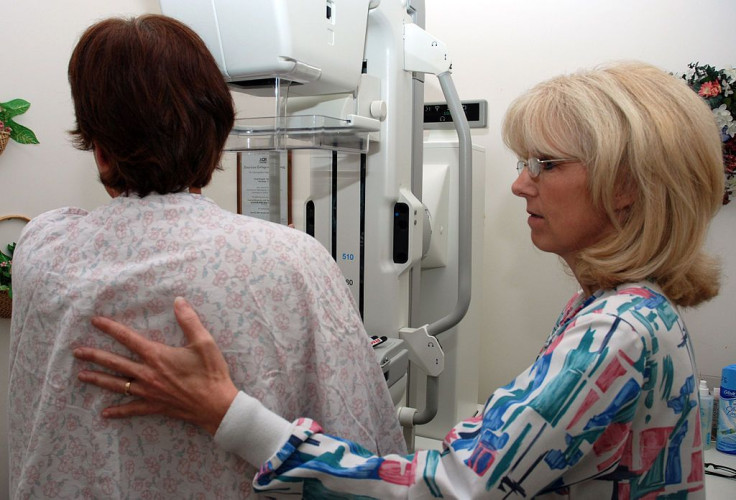Breast Density By Itself Not A Strong Risk Factor For Breast Cancer In Postmenopausal Women: Study

There's research that suggests women with dense breasts face a relatively higher risk of developing breast cancer, though the reason why isn't quite clear. Now, a new study presented during the annual meeting of the Radiological Society of North America suggests if breast density is a risk factor, it's not strong enough to predict cancer risk alone.
Lead study author Dr. Natasa Katavic, from the radiology department at Health Center Osijek in Croatia, worked with her colleagues to "assess the distribution of breast density of the patients with detected breast cancer during mammography screening." Doing so would allow researchers to evaluate the association of high mammographic density and breast cancer. Breast density, which refers to more fibrous or glandular tissue than fat in breasts, can only be seen on mammogram; it’s nothing to do with the feel or size, the American Cancer Society reported.
"We wanted to find out if breast cancer patients had more dense breast tissue than the healthy women," Katavic said in a press release. "Also, we wanted to see what the percentage of dense breasts was in our postmenopausal population and, consequently, determine the value of mammography screening for this group."
Using data from Croatia's National Breast Screening Program, where women age 50 to 69 years old are invited for mammography screening every two years, researchers analyzed 52,962 mammography exams conducted over the course of five years. Dense breast tissue was determined by two independent radiologists who could visually estimate the proportion of the denser areas on the mammogram. They categorized density based on the American College of Radiology criteria: The first category is almost entirely fatty, followed by scattered fibro-glandular densities, heterogeneously dense, and then extremely dense.
Out of 230 detected breast cancers, almost half were from the group with the lowest ranked breast density (83 percent of patients), while slightly less than 3 percent were from women with higher ranked density (17 percent). And when researchers matched women with cancer to a control group their same age and from their same county, they found no significant difference in mammographic density.
"Our study suggests that breast density alone might not be a strong independent risk factor for breast cancer," Katavic said. "In risk assessment, all risk factors should be considered before decisions on additional examinations."
Source: Katavic N et al. Association of breast density with breast cancer risk in screening mammography. Radiological Society of North America annual meeting. 2015.



























